#Norman conquest
Text

From haircut to wrapped leggings, an accurate Norman knight circa 1066 (Jim Holloway, Dragon magazine 40, August 1980) -- OK the bearded axe is more "Viking," but maybe it's a battlefield trophy, or maybe it belonged to his grandfather.
#D&D#Dungeons & Dragons#Jim Holloway#Dragon magazine#medieval#Norman#Anglo-Norman#1066#Norman conquest#Battle of Hastings#kite shield#nasal helm#battle axe#dnd#Dungeons and Dragons
184 notes
·
View notes
Text
My dealer: got some straight gas this strain is called "the battle of hastings" you'll be zonked out of your gourd
Me: Yeah whatever I don't feel shit
5 minutes later: dude I swear I just saw some normans off the coast
My buddy Ælfric pacing: the king is lying to us
#medievalism#battle of hastings#norman conquest#norman invasion#medieval history#middle ages#william the conqueror#edward the confessor#Bayeux Tapestry#1066#old english
192 notes
·
View notes
Text

The last invasion of Britain was the Battle of Hastings, 957 years ago
#Battle of Hastings#17 October 1066#Duke of Normandy#UK#King Harold#King William I#Norman conquest#English history#East Sussex#William the Conqueror#Saxon defeat#On this day
76 notes
·
View notes
Text
69 notes
·
View notes
Text
How has the British monarchy survived for so long? It’s all down to the strict rules which govern it, like the British Throne Line of succession, which decides who gets to rule next.
7 notes
·
View notes
Text
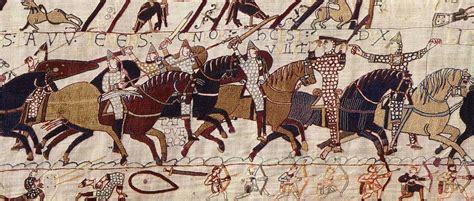

Happy Battle of Hastings day to all who celebrate/mourn
#battle of Hastings#history#British history#Norman conquest#William the conqueror#Harold Godwinson#1066#today in history#I'm still mourning
10 notes
·
View notes
Text

I feel like conquering England.
#1066#duolingo#norman conquest#milestone#i think it's funny how the week counter stopped at 4#my unbroken streak started last july#15 months ago#i mean yeah 60+ is technically more than 4 but still
8 notes
·
View notes
Text
Doctor Who + Bayeux Tapestry
The Doctor Who Fun Book: Who Was 'Ere! (1987):

The Brilliant Book 2011:
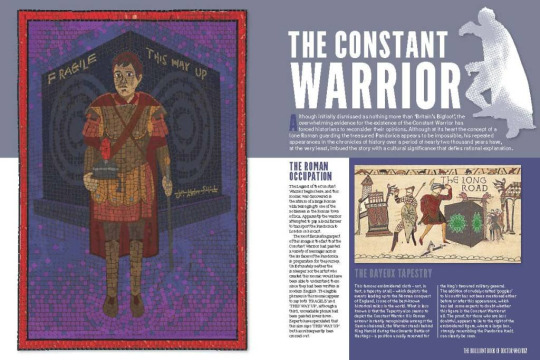
Fan art by @mudron (2013):
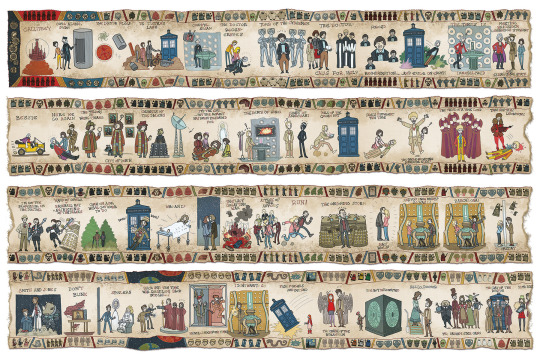
Official poster (2013):
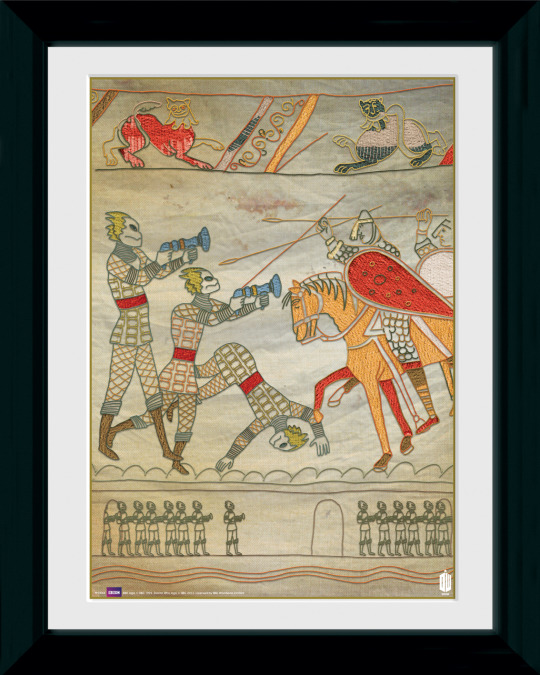
COMIC: Hunters of the Burning Stone (2013):

COMIC: Empire of the Wolf (2022):
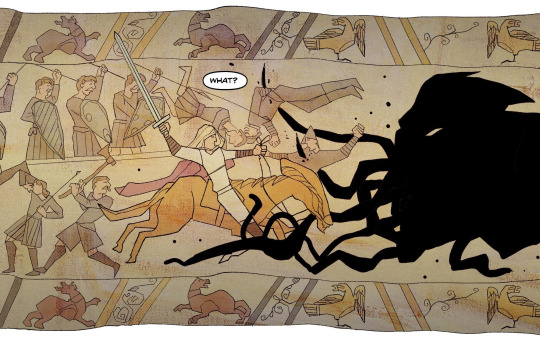
#doctor who#doctor who comics#dw comics#bayeux tapestry#history#british history#norman conquest#battle of hastings#doctor who plus
9 notes
·
View notes
Text
“…The Anglo-Saxon era is often thought of as having been a golden age for women. Since the late eighteenth century, it has been a commonplace that women in England had better rights before the Norman Conquest than they did afterwards, and were held in higher esteem by society. Before 1066, said one eminent historian in the mid-twentieth century, men and women enjoyed ‘a rough and ready partnership’. As so often with golden ages, however, this picture rests on a selective reading of very limited and debatable evidence. One of its principal props is an account of German women written by the Roman historian Tacitus towards the end of the first century AD. These women, claimed Tacitus, were virtuous, frugal and chaste, and supported their sons and husbands by encouraging them to acts of valour. But this was simply a Roman praising ‘barbarian’ society in order to criticize his own. German women were portrayed as laudable because, unlike their Roman counterparts, they did not conduct adulterous affairs or waste their time at baths and theatres. The reality, unfortunately, seems to be that the status of women in first-century Germany and Anglo-Saxon England was no better than it was in later centuries.”
-Marc Morris, "Anglo-Saxons: The History of the Beginnings of England, 400-1066” / Pauline Stafford, "Women and the Norman Conquest"
Anglo-Saxon England has thus been a Golden Age variously of women's domestication, women's legal emancipation, women's education and women's sexual liberation. The length of a tradition which has changed so fundamentally over time is no guarantee of its veracity. A cursory view of a range of evidence from either side of the 1066 divide casts immediate doubt on the idea of a brutal Norman ending of the Golden Age. The raw statistics of Domesday, for example, suggest a different picture of England on the eve of the Norman arrival. No more than five per cent of the total hidage of land recorded was in the hands of women in 1066. Of that five per cent, 80-85% was in the hands of only eight women, almost all of them members of the families of the great earls, particularly of earl Godwine, or of the royal family. By the tenth and eleventh centuries women other than the queen are virtually absent from the witness lists of the royal charters, and thus apparently from the political significance such witness lists record.”
#anglo-saxons#anglo-saxon england#norman conquest#english history#gender tag#medieval#I don't necessarily agree with Stafford about Henry I#He did name his daughter Matilda his heir but it's not really as simplistic as she makes it seem#We know he remarried soon after his son's death to a young woman who he travelled extensively with her to try and conceive another son#It was only after 5 years when it became clear that he and his second queen weren't having kids that he nominated Matilda#And even then he never shared authority with her (including authority in her own dower lands that HE gave her)#Also as multiple historians have pointed out - while Matilda was his immediate heir it's highly likely that he hoped to live long enough#to directly transfer the kingdom to his eldest grandson#Even some of Matilda's own supporters seem to have viewed the situation in a similar manner - for example the Gesta Stephani states that#Robert of Gloucester viewed Henry Plantagenet as his grandfather's true heir#ie: many contemporaries probably unfortunately viewed Matilda as a 'transitional point' so to speak#So while I do think that Henry I should be remembered as someone who tried to pass the throne to his daughter#I don't really think the picture was as straightforward or as empowering (in a sense) as Stafford paints it as#The reality was much more complex and frustrating and typical of its times#And I do think it does Matilda a disfavour to overlook that
3 notes
·
View notes
Text

Last year in riëvaux abbey
#rievaux abbey#old churches#old abbeys#christianity#architecture#history#heritage#Yorkshire#religon#medevil history#medevial#medieval architecture#norman conquest#Norman conquest of England#english#english heritage#English history#Normandy#selfie#couple#couple goals
6 notes
·
View notes
Text
This article is a study of the life of Gunhild (d. 1087), sister of King Harold, who, together with her mother Gytha, sought exile in Flanders after the Norman Conquest; it is set in the wider context of the fate of high-status elite or royal women in post-Conquest England. Gunhild’s lead burial plaque with inscription (found in her tomb in the church of St Donatian in Bruges) constitutes a unique testimony to the fate of a royal sister in the aftermath of the Norman Conquest. Her Latin obituary, the longest known on a lead plaque for an eleventh-century woman, consists of a biographical sketch of her and her family, including her brother’s death, and her itinerary in exile, while the second half is a near-hagiographical account of her as a woman religious; a new edition and English translation are included in an appendix. The article analyses the historical, literary and material aspects of Gunhild’s life, including evidence from the archive of St Donatian as to the considerable wealth she bequeathed to the canons in return for her burial in the church’s wall. It is suggested that as a woman religious she lived a penitential life on foreign soil not least to pay for the sins of the English defeated by the Normans. Comparison with other English royal or high-status elite women (and men) suggests that, defiantly and uniquely, Gunhild and her mother Gytha rejected accommodation with the Conqueror and instead followed the path of exile abroad, more commonly chosen by men.
2 notes
·
View notes
Text

Corfe Castle: the castle's position allows it to dominate a gap in the Purbeck Hills, with the location probably meaning that a fortified site had been established here long before the Norman conquest.
#history#historyfiles#corfe castle#castles#castles of britain#british isles#castles of the world#purbeck hills#normans#norman kings#norman conquest#photos#architectural photography
2 notes
·
View notes
Text
Usher: one who ushes

The Word of the Day is “usher.” My friend Dave is a volunteer usher at the Saratoga Performing Arts Center in upstate New York. I think he does it so he can see all the shows, but as I wrote on his Facebook page recently, “No one can ush like Dave can ush!”
That’s right, isn’t it? I mean, a baker is one who bakes, a painter is one who paints, so it stands to reason that an usher is one who ushes.
Except that’s totally wrong.
We need to evolve through a string of words to get to “usher.” We’ll start a long, long time ago in ancient Rome. The ancient Romans spoke Latin, and the Latin word “ostium” means “door.” An “ostiarius” was a doorkeeper or a porter. But that was high-class Latin, the kind spoken by politicians and the elite. The common folk spoke “Vulgar Latin,” and their word for doorkeeper was “ustiarius.” Not a big change, but we needed that “u” to start the word. Because when all that old Latin was translated into Old French, the word for a doorman or porter became “ussier.” Then the Norman Conquest happened, the Brits ended up speaking Anglo-French, and the word became “usser.” And from there, it was a hop, skip and jump to the English word “usher,” and our friend Dave holding the door for us and showing us to our seats.
But I still think “ush” should be the verb describing what an usher does. If a singer sings, a dancer dances, a writer writes, a teacher teaches, a farmer farms and so on, then why can’t an usher ush?
Who’s with me?
2 notes
·
View notes
Text
11 notes
·
View notes
Text

Site of an epic battle in 1070, Buttermere is supremely peaceful today
#Buttermere#Cumbria#Lake District#Battle of Rannerdale#Norman conquest#Jarl Boethar#scenery#English history
46 notes
·
View notes
Text
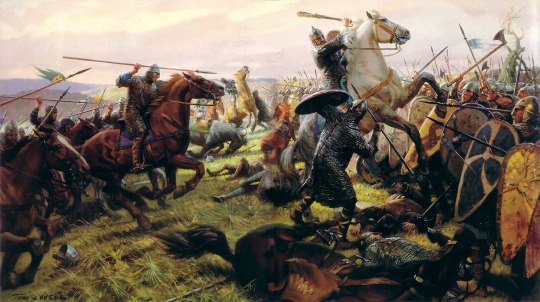
“Stand fast! Stand fast!” The Battle of Hastings
#1066#battle of hastings#bishop#odo of bayeux#william the conqueror#england#norman conquest#normans#anglo saxons#anglo saxon#bayeux tapestry#normandy#wace#roman de rou#conquest#invasion#art#painting#history#tom lovell#europe#knights#club#mace#white horse
35 notes
·
View notes